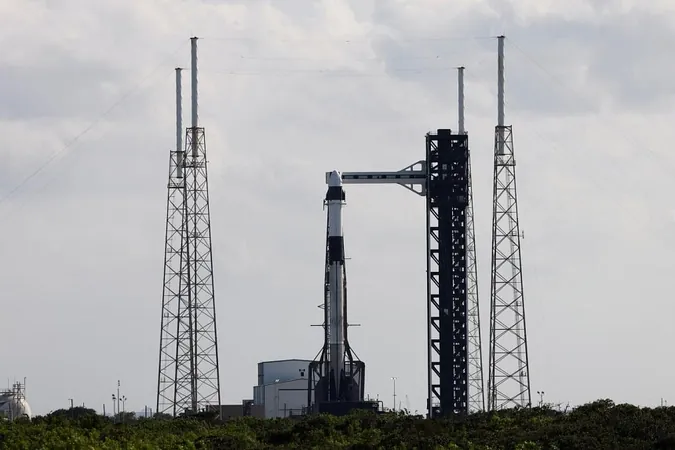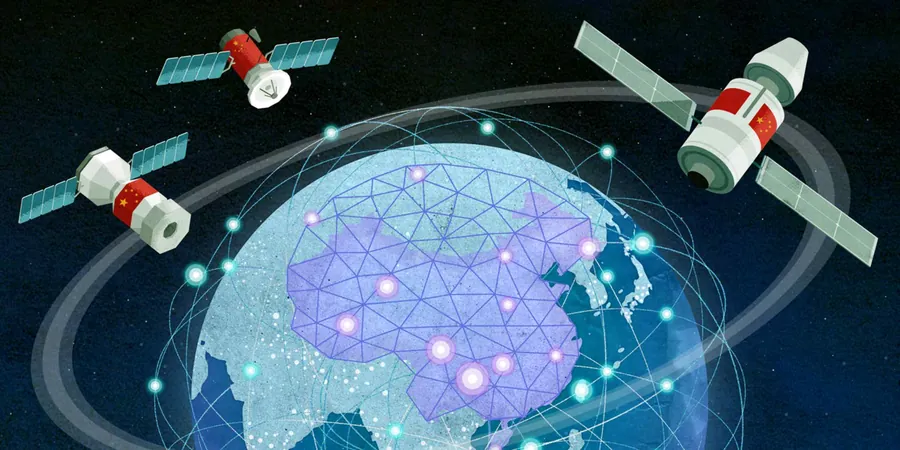
SpaceX’s Falcon 9 Cleared to Fly Again After FAA Investigation – What’s Next for Elon Musk?
2024-10-11
Author: Wei
In a significant development for the commercial space industry, the U.S. Federal Aviation Administration (FAA) announced on Friday that it has given the green light for the SpaceX Falcon 9 rocket to return to flight. This decision comes after a thorough review and acceptance of the findings from an investigation led by SpaceX itself, following a malfunction during a mission on September 28.
The issues began when the Falcon 9's second stage experienced a failure after a NASA astronaut mission. As a result of this mishap, the launch vehicle faced grounding for the third time in just three months. The malfunction was serious enough to cause the booster to crash into a region of the Pacific Ocean that lay outside the previously approved safety zone designated by the FAA.
Additionally, the FAA has concluded the investigations related to previous Falcon 9 mishaps that occurred during Starlink missions over the summer, in July and August, paving the way for renewed operations.
In an exciting upcoming event, the Falcon 9 is set to launch a mission for the European Space Agency's Hera spacecraft from Florida on Monday, allowing SpaceX to demonstrate that it’s back in business just in time.
Moreover, there are reports that the FAA could soon approve a license for SpaceX’s ambitious Starship 5 launch, potentially as early as this month. Starship 5 represents the fifth test flight for SpaceX's fully reusable Starship rocket system, which aims to facilitate human and cargo transportation to Earth orbit and beyond, including the Moon.
This news comes after earlier expectations from the FAA that a decision on Starship's launch license might not arrive until late November. SpaceX has expressed eagerness for the flight, asserting that the Starship 5 is ready for launch pending approval.
Despite the positive news, tensions continue between SpaceX and the FAA. CEO Elon Musk has been vocal in his criticisms of the regulatory body, particularly over a proposed $633,000 fine against SpaceX for past launch discrepancies and the delays surrounding the Starship 5 licensing process. Musk has even called for the resignation of FAA Administrator Mike Whitaker and suggested legal action against the agency.
As SpaceX navigates through these regulatory hurdles, the company’s future missions raise exciting possibilities, and the space community eagerly awaits the next steps in their quest to push the boundaries of space travel. Will the Falcon 9 soar successfully again, and how will this affect SpaceX's broader ambitions for interplanetary exploration? Stay tuned!





 Brasil (PT)
Brasil (PT)
 Canada (EN)
Canada (EN)
 Chile (ES)
Chile (ES)
 España (ES)
España (ES)
 France (FR)
France (FR)
 Hong Kong (EN)
Hong Kong (EN)
 Italia (IT)
Italia (IT)
 日本 (JA)
日本 (JA)
 Magyarország (HU)
Magyarország (HU)
 Norge (NO)
Norge (NO)
 Polska (PL)
Polska (PL)
 Schweiz (DE)
Schweiz (DE)
 Singapore (EN)
Singapore (EN)
 Sverige (SV)
Sverige (SV)
 Suomi (FI)
Suomi (FI)
 Türkiye (TR)
Türkiye (TR)